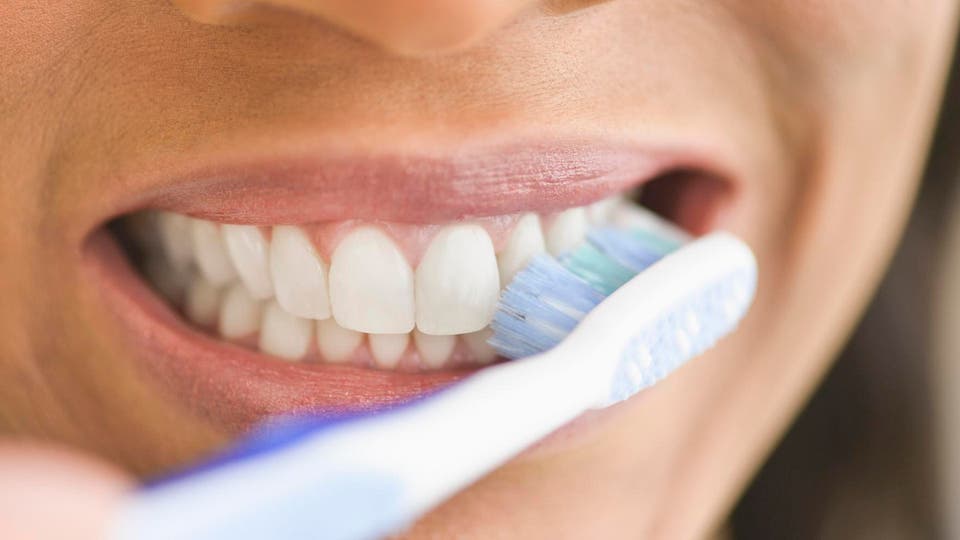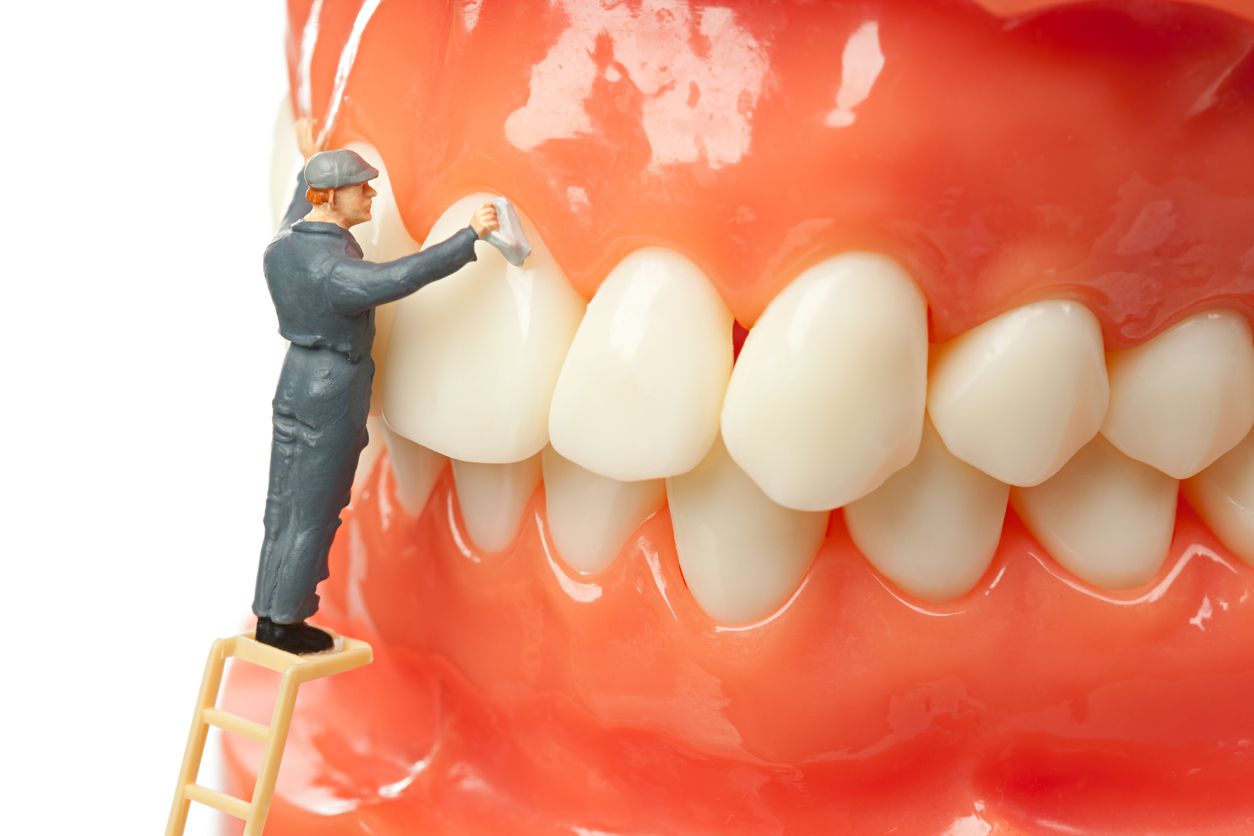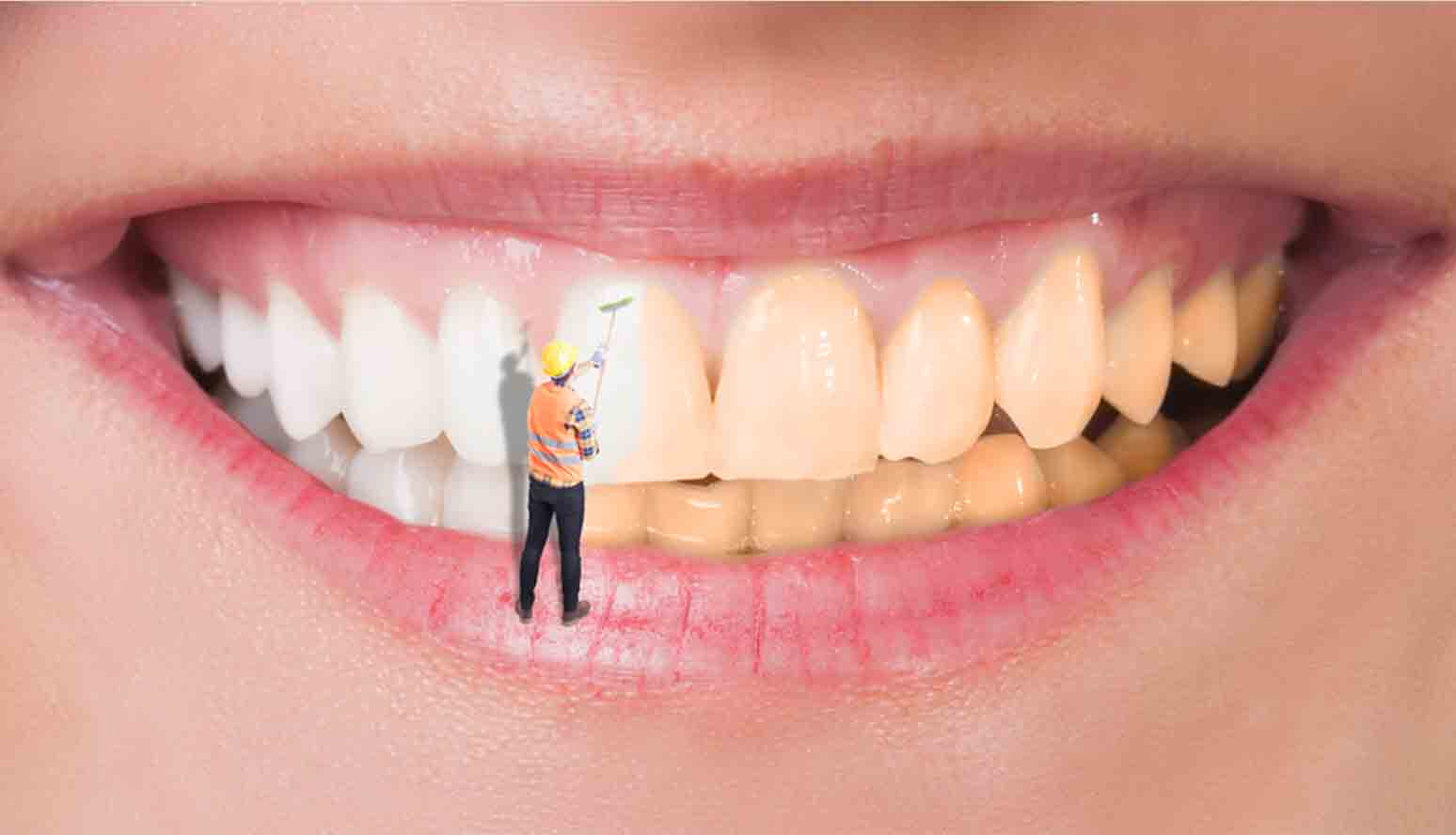
The most wonderful thing that is drawn on your face is the smile, and the most wonderful smile is the one that reveals clean, white, consistent teeth, and to get this bright smile, you have to put some effort and time into caring for your teeth.
The teeth are exposed daily to a lot of acid and alkaline substances through the foods and drinks that you eat throughout the day, and the mouth is a suitable environment for the growth of many microbes that consume the leftovers of the food in the mouth, and produce acidic compounds that can affect the tooth enamel.
Introduction to dental radio
Nothing is heavier than a visit to the dentist's office, especially if this visit is to extract or fill a tooth, and nothing is worse than toothache and gum infections.
Therefore, you should take care of this important part of the body by brushing your teeth twice a day, especially before going to sleep, so as not to allow the opportunity for microbes to affect your teeth and analyze the protective layer on them, causing them to decay.
You should also brush your teeth after eating sugary foods, visit your dentist every six months to make sure your teeth are clean and free of tartar, and use dental floss to clean areas that are hard to reach with a toothbrush.
Radio on dental health
Dental care is one of the healthy habits that a person can get used to from a young age, to become an integral part of his daily life and personal lifestyle. Protects his teeth, oral health and gums.
A school broadcast on dental health makes us emphasize that oral and dental health is necessary not only to avoid tooth decay and gum infections, but because oral health affects the body in general.
For example, bacteria that cause dental pollution can secrete their toxins into the whole body through the blood supply that reaches the teeth and gums, where these toxins move throughout the body through the blood circulation, causing many health problems.
Radio on oral and dental health
Cleaning the teeth, especially the areas related to the gums, maintains the health of the mouth and teeth, and avoids cavities and gum infections.
You should immediately go to the dentist in the following cases:
- Gingivitis or sensitivity.
- Bleeding gums while brushing or while eating.
- Gum recession.
- Loose teeth.
- Sensitivity to hot or cold things.
- Foul odors from the mouth.
- Feeling of toothache when chewing.
A paragraph of the Holy Qur’an on teeth for school radio
God (the Almighty) urged us to protect the human soul from everything that could harm it, and to guard against diseases and health problems that could affect a person’s effort and mission in life, just as he made His Messenger an example to follow in everything he did, left, or bequeathed. with it.
He (the Almighty) said in Surat Yunus: “O people, there has come to you an admonition from your Lord, and a healing for what is in the breasts, and a guidance and mercy for the believers.”
And in sympathizing with the Messenger (peace and blessings be upon him), he (the Almighty) said in Surat Al-Ahzab: “Indeed, in the Messenger of God, you have an excellent example for those who hope in God and the Last Day and remember God often.”
Talk about teeth for school radio
The Messenger (peace and blessings be upon him) in the name of the gaps was interested in taking care of the health of the teeth and mouth, and he recommended in many places to investigate their cleanliness, and from that we mention the following noble hadiths:
The Messenger of God (may God bless him and grant him peace) said: “I was commanded to use the siwak until I was afraid for my mouth.”
And he said (upon him be the best prayer and complete the delivery): “The miswak purifies the mouth and is pleasing to the Lord.”
He also said: “Were it not that I would be hard on my nation, I would have commanded them to use the siwak with every prayer.”
Wisdom about teeth

The worst thing that can happen to your mouth in this life: to be closed by the authority and opened by the dentist. Muhammad Al-Ratyan
He whose mouth hurts finds honey bitter. Like Basky
There is no pain except the pain of the tooth, and there is no concern except that of the wedding - a Shami proverb
Biting the teeth, not biting the tongue. Michael Naima
Radio on tooth decay
Tooth decay is one of the most common health problems in all parts of the world, and it affects 32% of adults worldwide. That is, about 2.3 billion people in the world, according to estimates by the World Health Organization.
It occurs as a result of the analysis of food residues in the mouth by the bacteria that live inside it, which results in some acids that create cavities in the tooth, and these cavities can have different colors such as yellow, black, or two colors.
One of the symptoms of tooth decay is the feeling of pain and inflammation of the tissues surrounding the tooth in the gums, and this can lead to the loss of the tooth or the formation of an abscess.
Bacteria in the mouth use simple sugars in order to obtain energy that helps them carry out vital processes, which results in the release of acids that erode the hard enamel layer that protects the tooth. Therefore, eating foods rich in these sugars is one of the most important causes of tooth decay.
Saliva is one of the natural substances produced by the mouth, which is usually inclined to alkaline, and the production of a lot of saliva can resist tooth decay and protect it from the acids produced by bacteria, and there are some diseases that affect the production of saliva, such as diabetes, which makes oral problems worse in these patients .
Brushing your teeth regularly twice a day, using dental floss is one of the most important means of preventing tooth decay, as well as avoiding sugary foods, and eating foods rich in vitamins, minerals and fiber.
Radio for children about teeth
Taking care of your oral and dental health not only avoids the pain caused by inflammation of the nerves of the tooth and gum infections, and protects you from a heavy visit to the dentist that may eventually lead to losing the tooth or treating it by emptying the decayed parts of it and filling it with other materials, but it will also give you the most wonderful smile and a bright face that reflects Cleanliness, elegance and beauty.
Brush your teeth twice a day, especially before you go to bed and make it a daily habit that you do not abandon, and take your time to clean each tooth carefully, and you should visit the dentist to check from time to time.
You should also take care of eating healthy foods rich in calcium and vitamin D to protect your teeth and their strength, eat milk and dairy products in particular, avoid too much sweets, and brush your teeth after you finish eating sweets.
Broadcast on World Oral and Dental Health Day
On March 20 of each year, the world celebrates the World Oral and Dental Health Day, a day in which awareness is spread about the importance of oral and dental care, protection and care for their cleanliness.
According to the reports of the World Health Organization, 90% of the world's population suffers from oral diseases at some stage in their lives, but many of them neglect to treat health problems related to the mouth and teeth, and this is usually in poor and developing countries, which lack an integrated health care system. .
The celebration of World Oral and Dental Health Day began in 2013 and was launched by the World Dental Federation. The first title of these events was (Healthy Teeth for a Healthy Life). Since then, the event has dealt with a new topic every year, such as (Brush a Healthy Mouth), (Smile for Life), or ( It all starts here... healthy mouth, healthy body.
Radio for Dental Health Week
From March 25 to 31, the world celebrates Dental Health Week, during which awareness is raised about the importance of oral and dental hygiene care, as oral and dental diseases are among the most common health problems in the world, and can affect even infants, as well as children under the age of six.
A third of adults worldwide suffer from permanent tooth decay, without many of them receiving adequate health care due to low income levels and lack of health care.
Radio on teeth for the primary stage
Most of the habits that remain with a person are formed during childhood, whether good or bad habits, and the best thing that you can accustom yourself to from now - dear student / dear student - is taking care of cleaning the teeth and tongue, and taking care of the health of the gums.
Taking care of the teeth is not a luxury, but rather your way to protect the health of the body in general. The health of the body starts from the mouth, and even the milk teeth that are replaced during the years of the primary stage must be taken care of and not neglected, and until the permanent teeth grow in the correct way in the right places.
You should also pay attention to eating foods rich in calcium, such as milk, dairy products, fish, eggs, and vitamin D, which helps absorb and metabolize calcium in the body.
Radio on dental hygiene

In a school broadcast on dental hygiene, we present to you the rules for cleaning them according to the advice of oral and dental care experts:
Brush your teeth twice a day:
You should brush your teeth at least twice a day, and be careful with that and make sure to brush each tooth carefully, and do not brush your teeth immediately after eating, especially if you have eaten something acidic such as oranges or grapefruits.
Clean your tongue:
Many people neglect to clean the tongue even though it is a suitable environment for the growth of microbes, so you should also clean it with a brush and paste to avoid microbes remaining on its surface.
Use appropriate dental cleaning equipment:
Choose a type of toothpaste that contains fluoride, a toothbrush with soft bristles, and a streamlined shape that fits your mouth, and you can also use electric brushes or those that operate automatically using batteries, as these modern tools help you clean your teeth effectively, and they are especially useful for those who suffer from Joint pain, and they cannot properly care for their teeth.
Replace your brushes at the right time:
You should replace your toothbrush every 3-4 months at the latest and bring a new one to ensure maximum effectiveness.
Using dental floss:
To reach the narrow areas between the teeth, you must use the floss, and doctors recommend using about 46 cm of floss during the cleaning of the teeth.
A broadcast on the Gulf Week for Oral and Dental Health
Dental Health Week is an activity approved by the Gulf Cooperation Council countries from 8-14 Rajab to take care of oral and dental health, as the rate of tooth decay increases among the citizens of these countries, especially in the Kingdom of Saudi Arabia.
The Gulf Committee for Oral and Dental Health is hosting this event, and it aims to educate children, parents and society in general about the importance of taking care of oral and dental health, as well as workers in the health sector including doctors, technicians and administrators.
School program on dental hygiene
May God bless your morning - my student friends / my female student friends - with the most wonderful and beautiful smile, a smile that reveals pearly teeth that radiate cleanliness and beauty. It is the most beautiful message to others that can speak about you.
And getting this bright smile requires you to pay attention to the hygiene of the mouth and teeth and take care of them until it becomes a daily habit that cannot be abandoned.
You should brush your teeth twice a day using a toothbrush and a suitable fluoride-containing paste, use dental floss, and visit the dentist at regular visits every six months to ensure the safety of your mouth, teeth, and gums.
You should also be careful to eat useful foods that help protect your health in general and the health of the teeth, mouth and gums in particular, those rich in fiber, vitamins and minerals, and low in their content of soluble sugars in the mouth.
Do you know about teeth
The number of milk teeth is 20, and they begin to appear in about the sixth month of life.
The number of permanent teeth is 32, and they begin to appear at about six years of age.
Wisdom teeth are known by this name because they begin to erupt after the age of about 16 years.
There are 6 major salivary glands in the mouth, and a number of other small salivary glands.
Plaque is a thin film that forms on the teeth a few hours after eating, while tartar is calcifications of plaque that form over days and weeks.
Dentists advise choosing a soft brush to avoid gum infections.
You should brush your teeth after every meal and use dental floss before bed.
If your tooth fell out due to trauma, you can keep it in a glass of water and take it to the dentist to put it back in place.
Some bacteria that cause tooth decay can affect the heart.
Dental implants consist of implanting a titanium root, and adding a crown to it similar to natural teeth.



